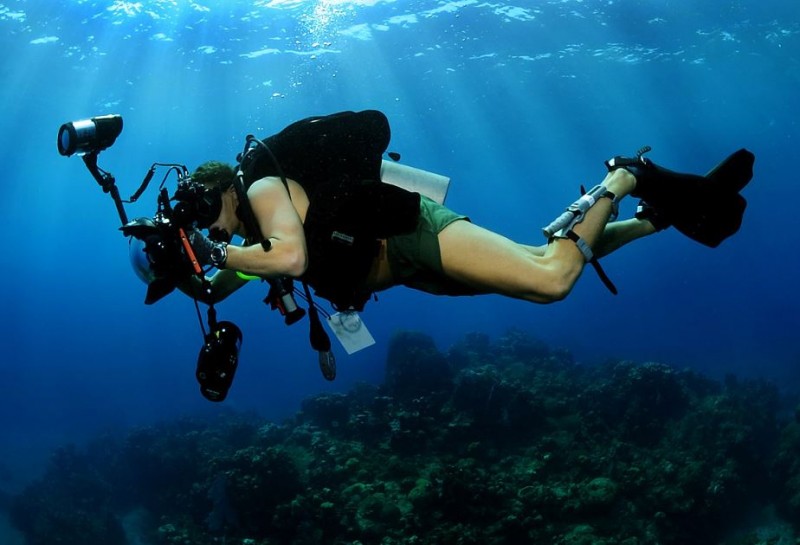
The realms of undersea exploration and space exploration represent two captivating frontiers of human discovery, each with its unique challenges, opportunities, and achievements. In this article, we delve into the distinct characteristics of undersea exploration, compare it to space exploration, examine what has been uncovered in the depths of our oceans, and contemplate the vast possibilities that still lie beneath the sea.
Environment: One of the fundamental differences lies in the environment. Space is a near-perfect vacuum characterized by extreme temperatures, intense radiation, and a lack of atmosphere, making human survival outside a spacecraft exceedingly challenging. In contrast, undersea exploration occurs in a high-pressure, high-density environment with relatively stable temperatures, making it more conducive to human presence.
Accessibility: While space exploration requires complex rocket launches and interstellar travel, undersea exploration is more accessible. Submersibles, research vessels, and underwater habitats allow scientists to venture into the depths without the need for extensive extraterrestrial travel.
Visibility: In space, the vast distances make direct observation of celestial bodies challenging, often requiring advanced telescopes and probes. In the ocean, researchers can directly observe marine life, geology, and ecosystems, providing more immediate access to data.
Over the years, undersea exploration has unveiled a wealth of knowledge about our oceans, including:
Deep-Sea Life: Scientists have discovered countless species of marine life, many of which are unique to the deep sea. These include bioluminescent creatures, mysterious fish, and bizarre invertebrates living in extreme conditions.
Underwater Geology: Exploration has unveiled the intricate geology of the ocean floor, including underwater volcanoes, hydrothermal vents, and geothermal hotspots.
Mapping the Seafloor: Advanced sonar technology has allowed researchers to map the seafloor with unprecedented detail, revealing hidden landscapes and tectonic plate boundaries.
Climate Research: Oceans play a crucial role in regulating Earth's climate. Researchers have gathered extensive data on ocean currents, temperature patterns, and their impact on weather systems.
Resource Exploration: Scientists have identified potential resources in the form of deep-sea minerals, including polymetallic nodules and hydrothermal vent deposits, which could have economic significance in the future.
While both undersea and space exploration have expanded our understanding of the universe, space exploration has garnered more attention and funding, resulting in a broader array of discoveries. This is partly due to the allure of space and the quest to answer profound questions about the cosmos. However, in recent years, undersea exploration has made significant strides in uncovering the mysteries of our oceans.
Extent of Ocean Exploration
Despite progress, a substantial portion of the ocean remains unexplored. Approximately 80% of the world's oceans remain unmapped and unexplored, with the deepest regions, such as the Mariana Trench, still largely unknown. The ocean's immense depth and pressure present formidable challenges, limiting our ability to explore every corner.
Possibilities in the Sea
The uncharted depths of the ocean hold immense potential for future discoveries, including:
New Species: There is a high likelihood of discovering new species, particularly in the extreme conditions of the deep sea, where life has adapted uniquely.
Medical Advancements: Marine organisms may provide valuable compounds with pharmaceutical applications, as exemplified by existing discoveries like the cancer-fighting drug, Yondelis, derived from a deep-sea sponge.
Resource Exploration: Deep-sea mining could become a reality, potentially yielding valuable minerals and metals to meet growing global demands.
Climate Clues: Further exploration can enhance our understanding of climate change and its effects on ocean ecosystems.
In conclusion, undersea exploration and space exploration offer distinctive opportunities for expanding human knowledge. While space may capture more attention, the oceans remain a frontier of untapped potential, with countless discoveries yet to be made. Continued investment in undersea research and technology will likely yield remarkable insights into our planet's most mysterious and vital ecosystem. The exploration of both realms, space and the sea, will continue to shape our understanding of the world around us and our place within the universe.
BJP Issues Show Cause Notice to MP Ramesh Bidhuri for Unparliamentary Language
DSP Sheikh Aadil Mushtaq Arrested on Charges of Terror Links and Corruption in Jammu and Kashmir
Matsya 6000: India's Pioneering Manned Submersible for Deep-Sea Exploration